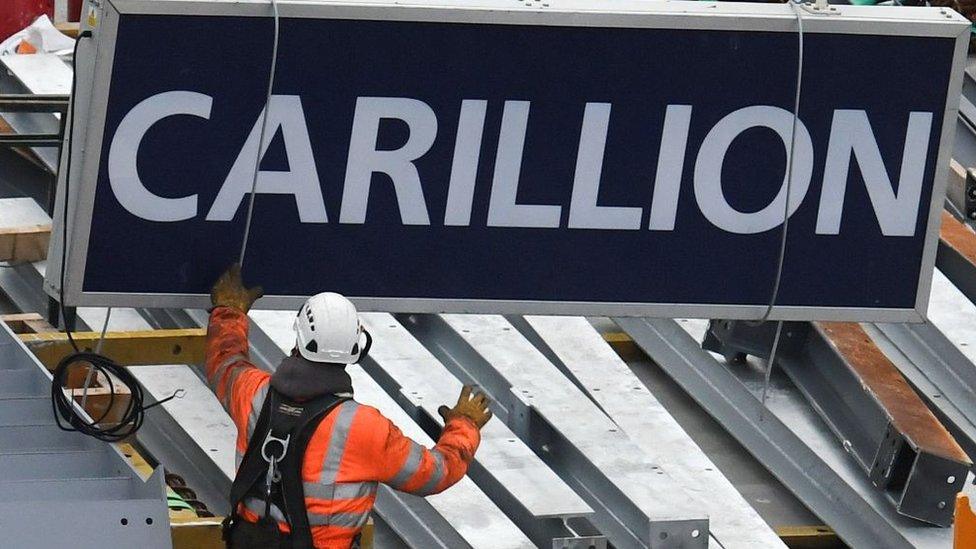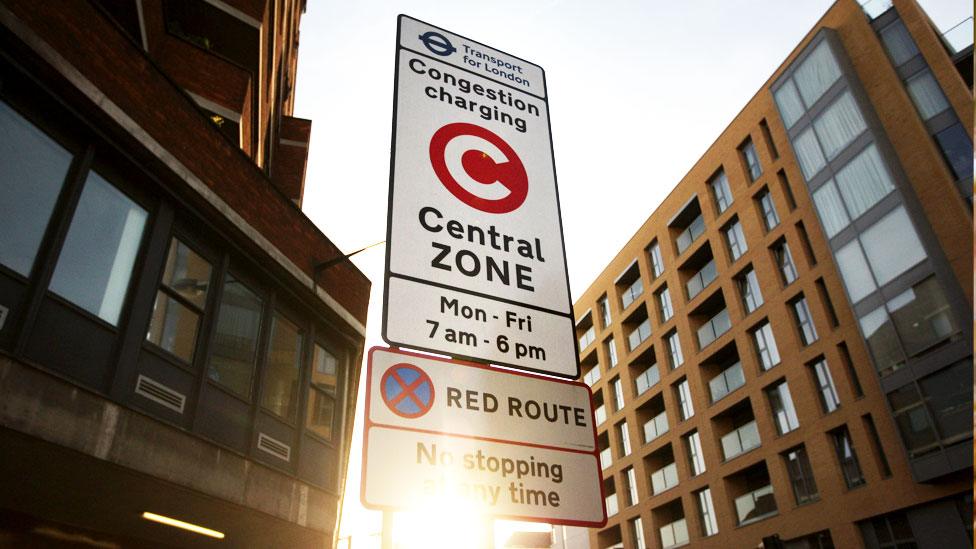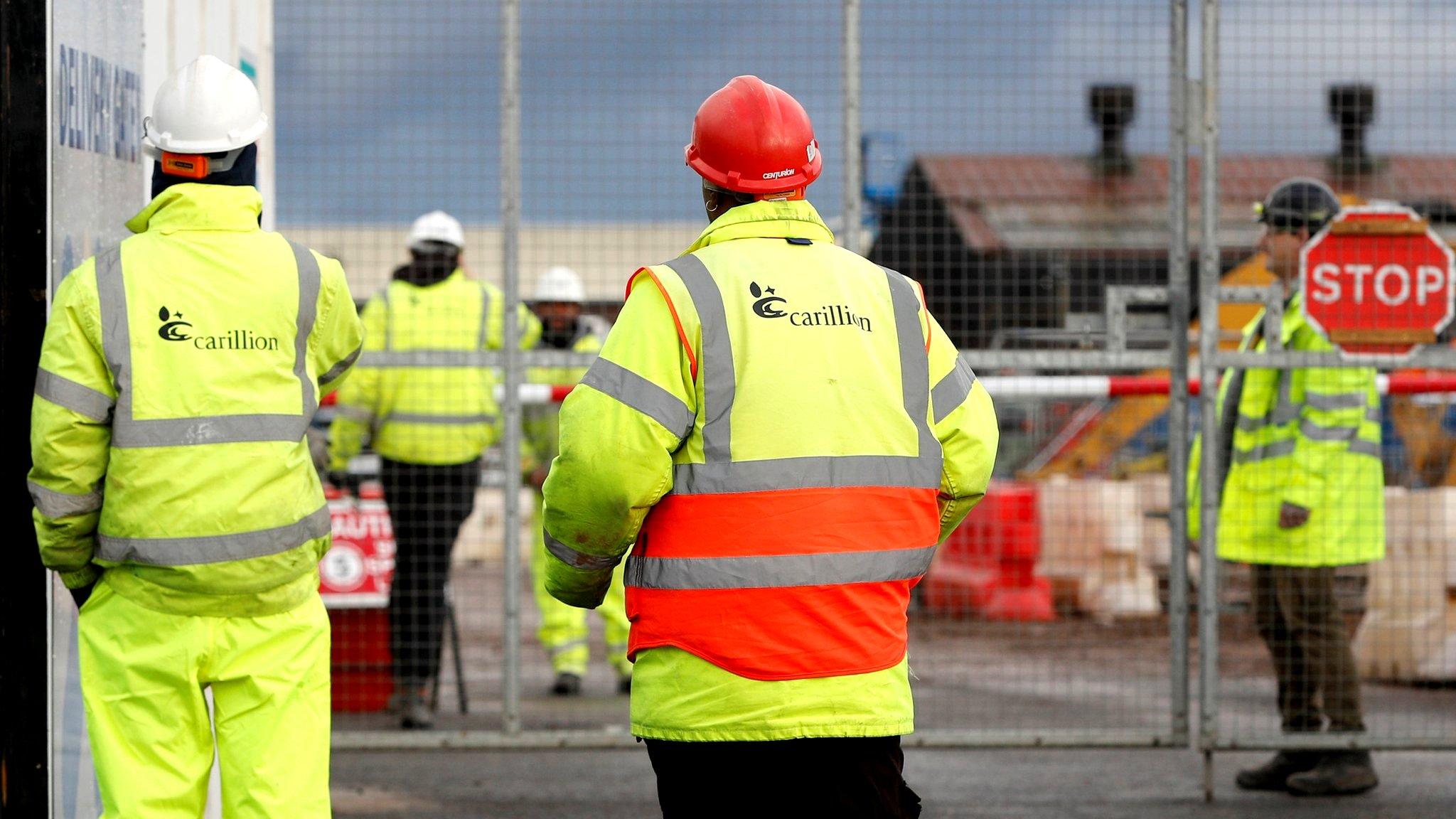Interserve shares slide amid Capita woes
- Published
- comments

Interserve is building the Defence and National Rehabilitation Centre at Stanford Hall in the East Midlands
Shares in outsourcing firm Interserve tumbled on Thursday in the wake of Capita's profit warning that wiped more than £1bn off its market value.
Interserve slid almost 20%, Mitie fell 6.9% and Serco lost 3.4% as investors fretted about the state of the wider outsourcing sector.
The fall for Interserve followed a profit warning in October that sent its shares tumbling by nearly 30%.
After almost halving on Wednesday, Capita shed a further 13% on Thursday.
Cabinet Office minister Oliver Dowden told MPs on Thursday that Capita was not "in a comparable position" to Carillion, which collapsed last month.
He confirmed that government officials met Capita bosses after its profit warning.
On Wednesday Capita warned that its profits for 2018 would be about a third lower than expected, prompting it to axe dividend payments to shareholders and raise £700m by issuing new shares.

Analysis: by Simon Jack, BBC business editor
Despite some important differences, Interserve is the company that bears the closest resemblance to the liquidated Carillion.
While Carillion had a number of major projects that went sour, Interserve's problems stem primarily from one line of business - its energy-from-waste business, from which it is extricating itself.
The UK government says it is monitoring Interserve and in a recent statement declared "it doesn't believe any of its key suppliers are in a similar position to Carillion".
Interserve is a much smaller business than Carillion, but if you were looking for a mini-me this looks like a chip off the old block.
The company announces full-year results at the end of March. It will feel like a long wait for shareholders - and chief executive Debbie White, who will have to reassure and convince the banks to stick with Interserve before she can reassure the markets.

Capita operates the London congestion charge, runs the government's Jobseeker's Allowance helpline and administers the teachers' pension scheme. It also collects the TV licence fee on behalf of the BBC.
Answering an urgent question from Business Select Committee chair Rachel Reeves on whether Capita posed a risk to public services and finances, Mr Dowden said it was "in a very different situation" to that of Carillion.
"We continue to work closely with the company to monitor the execution of its plan, and of course to ensure the continued delivery of public services," he said.
"We regularly monitor the financial stability of all our strategic suppliers including Capita and we do not believe that they are in a comparable position to Carillion.

"The measures that Capita has announced are designed to strengthen its balance sheet, reduce its pension deficit and to invest in core elements of its business. Arguably these are the measures that could have prevented Carillion from getting into the difficulties that they did."
Carillion, the construction and services company, collapsed in January after it was unable to secure financial support to continue trading.
'More similarities than differences'
However, Ms Reeves described the government's thinking on the differences between Capita and Carillion as "muddled and complacent".
The Labour MP said: "Both Capita and Carillion have debts of more than £1bn and pensions deficits in the hundreds of millions. Both Capita and Carillion paid out dividends of more than £1bn in the last five years.
"Both Capita and Carillion rely on the public purse for half of their contracts. Both Capita and Carillion were audited by KPMG. Both Capita and Carillion grew through acquisition and not through organic growth.
"It seems there are more similarities than differences between these two companies," she added.
- Published31 January 2018

- Published15 January 2018
